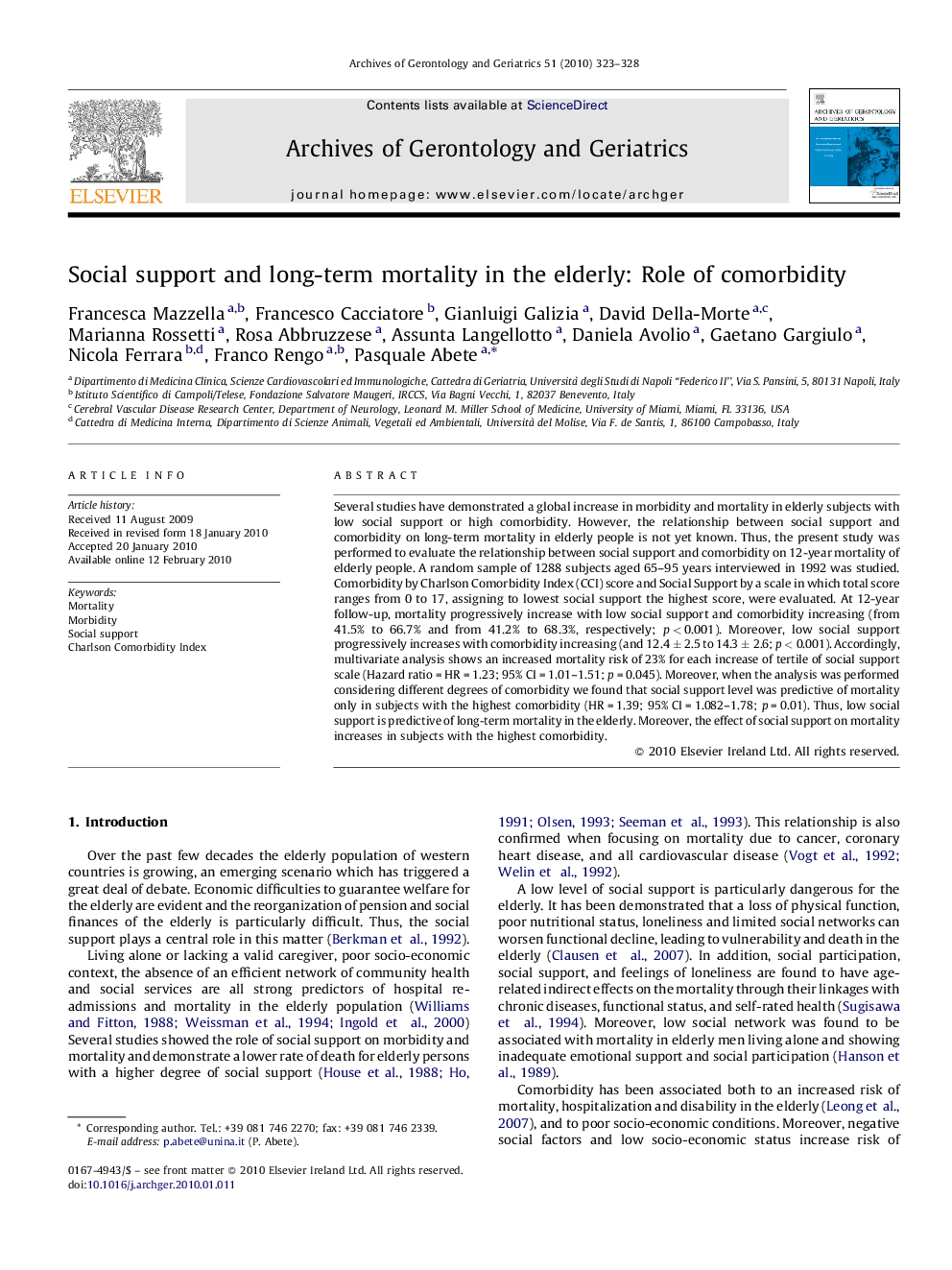| Article ID | Journal | Published Year | Pages | File Type |
|---|---|---|---|---|
| 1903713 | Archives of Gerontology and Geriatrics | 2010 | 6 Pages |
Several studies have demonstrated a global increase in morbidity and mortality in elderly subjects with low social support or high comorbidity. However, the relationship between social support and comorbidity on long-term mortality in elderly people is not yet known. Thus, the present study was performed to evaluate the relationship between social support and comorbidity on 12-year mortality of elderly people. A random sample of 1288 subjects aged 65–95 years interviewed in 1992 was studied. Comorbidity by Charlson Comorbidity Index (CCI) score and Social Support by a scale in which total score ranges from 0 to 17, assigning to lowest social support the highest score, were evaluated. At 12-year follow-up, mortality progressively increase with low social support and comorbidity increasing (from 41.5% to 66.7% and from 41.2% to 68.3%, respectively; p < 0.001). Moreover, low social support progressively increases with comorbidity increasing (and 12.4 ± 2.5 to 14.3 ± 2.6; p < 0.001). Accordingly, multivariate analysis shows an increased mortality risk of 23% for each increase of tertile of social support scale (Hazard ratio = HR = 1.23; 95% CI = 1.01–1.51; p = 0.045). Moreover, when the analysis was performed considering different degrees of comorbidity we found that social support level was predictive of mortality only in subjects with the highest comorbidity (HR = 1.39; 95% CI = 1.082–1.78; p = 0.01). Thus, low social support is predictive of long-term mortality in the elderly. Moreover, the effect of social support on mortality increases in subjects with the highest comorbidity.
